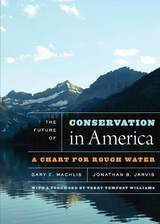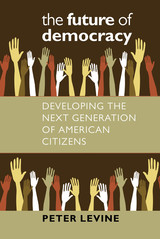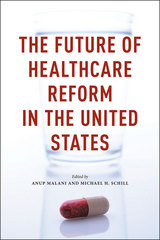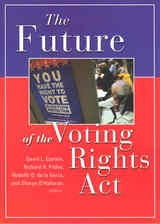1015 start with F start with F

Written by the first scientist appointed as science advisor to the director of the National Park Service and the eighteenth director of the National Park Service, this is a candid, passionate, and ultimately hopeful book. The authors describe a unified vision of conservation that binds nature protection, historical preservation, sustainability, public health, civil rights and social justice, and science into common cause—and offer real-world strategies for progress. To be read, pondered, debated, and often revisited, The Future of Conservation in America is destined to be a touchstone for the conservation movement in the decades ahead.


Are NATO’s mutual security commitments strong enough today to deter all adversaries? Is the nuclear umbrella as credible as it was during the Cold War? Backed by the full range of US and allied military capabilities, NATO’s mutual defense treaty has been enormously successful, but today’s commitments are strained by military budget cuts and antinuclear sentiment. The United States has also shifted its focus away from European security during the wars in Afghanistan and Iraq and more recently with the Asia rebalance. Will a resurgent Russia change this?
The Future of Extended Deterrence brings together experts and scholars from the policy and academic worlds to provide a theoretically rich and detailed analysis of post–Cold War nuclear weapons policy, nuclear deterrence, alliance commitments, nonproliferation, and missile defense in NATO but with implications far beyond. The contributors analyze not only American policy and ideas but also the ways NATO members interpret their own continued political and strategic role in the alliance.
In-depth and multifaceted, The Future of Extended Deterrence is an essential resource for policy practitioners and scholars of nuclear deterrence, arms control, missile defense, and the NATO alliance.

Americans are understandably concerned about the runaway costs of medical care and the fact that one citizen out of seven is without health insurance coverage. Solving these problems is a top priority for the Clinton administration, but as Victor Fuchs shows, the task is enormously complex. In this book Fuchs, America's foremost health economist, provides the reader with the necessary concepts, facts, and analyses to comprehend the complicated issues of health policy. He shows why health care reform that benefits society as a whole will unavoidably burden certain individuals and groups.
Fuchs addresses such central questions as cost containment, managed competition, technology assessment, poverty and health, children's health, and national health insurance. The future of U.S. health policy, he argues, is tightly linked to three basic questions; First, how can we disengage health insurance from employment? Second, how can we tame technological change in health care? And finally how can we cope with the runaway medical costs of an aging society?

In the years since the passage of the Patient Protection and Affordable Care Act (PPACA, or, colloquially, Obamacare), most of the discussion about it has been political. But as the politics fade and the law's many complex provisions take effect, a much more interesting question begins to emerge: How will the law affect the American health care regime in the coming years and decades?
This book brings together fourteen leading scholars from the fields of law, economics, medicine, and public health to answer that question. Taking discipline-specific views, they offer their analyses and predictions for the future of health care reform. By turns thought-provoking, counterintuitive, and even contradictory, the essays together cover the landscape of positions on the PPACA's prospects. Some see efficiency growth and moderating prices; others fear a strangling bureaucracy and spiraling costs. The result is a deeply informed, richly substantive discussion that will trouble settled positions and lay the groundwork for analysis and assessment as the law's effects begin to become clear.




In this passionate and challenging book, a distinguished historian of Zionism argues that the world of Jewry is coming apart, that the old reality of Jewish nationhood lies shattered, that Israel is increasingly isolated, fated to go its separate way disengaged from Jewish communities in the Diaspora—most especially the Jewish community in the United States.
David Vital traces the roots of this disarray to the revolution—still unfinished—that began with the emancipation of the Jews in France after the Revolution, continued with the movement of Jews out of Europe and the decimation of European Jewry in the Holocaust, and culminated in the establishment of the state of Israel. For the first time in centuries the Jews have emerged as actors in history, with a nation-state of their own, but the political interests of Jews in Israel and of Jews in the Diaspora appear to be irreparably divided. The Jews are no longer a cohesive people, Vital claims; contemporary Jewry is profoundly fractured and dysfunctional, a fact that is nowhere more apparent than in the growing gap between the two largest Jewish communities in the world, the ones in Israel and in the United States.
This incisive book describes the waning of the Jewish nation, in an effort to lay the groundwork for a cool, clear, and more hardheaded view of the future of the Jews. Anyone with a serious interest in contemporary politics, and in the history and problematics of the Jews and Judaism, will find much to consider in this gripping book.



The United States is about to embark on the most thorough reconsideration of its ocean policy in more than three decades. With 1998 designated as the International Year of the Ocean by the United Nations, and with both the executive branch and the Congress currently working toward developing new approaches to formulating and implementing ocean policy, a comprehensive overview of key issues and concerns is essential.
The Future of U.S. Ocean Policy provides such an overview, with an in-depth analysis of the evolution of U.S. ocean policy and a timely discussion of the most important ocean and coastal issues facing the nation. The book assesses the current status of ocean policy, examines national and international trends, and considers choices for policymakers in the 21st century. Following an introductory chapter that reviews national ocean policy and the process by which it is made, the authors:
- review the history of development of U.S. ocean and coastal policy
- examine the major ocean laws enacted in the 1970s and review and assess their record of implementation
- examine factors that will affect U.S. ocean policy in the coming decade
- discuss the need to make policy more coherent, and to develop institutional mechanisms that can foster more effective guidance and oversight
- present a set of policy options for improving U.S. ocean policy
The Future of U.S. Ocean Policy is the only recent book that focuses on national ocean policy in its entirety, and will play an important role in upcoming debates concerning the future direction of policy initiatives. Agency personnel, members and staff of nongovernmental organizations, industry groups, Congressional staffers, state and local government officials, academics, and concerned citizens will find the book an invaluable guide, as will students and faculty in courses in marine and coastal management and in environmental management.

Selected contributors. Dahlak Brathwaite, adrienne maree brown, Jeff Chang, Tameca Cole, Ofelia Esparza, Antoine Hunter, Nobuko Miyamoto, Wendy Red Star, Spel, Jose Antonio Vargas, Carrie Mae Weems, Hinaleimoana Kwai Kong Wong-Kalu

The widespread legalization of gambling across the U.S. has produced concerns for serious social, economic, and health problems. For the first time in this country, an entire generation of young people has reached adulthood within a context of approval and endorsement of gambling as a source of entertainment and recreation. Compared with their adult counterparts, these young people have evidenced a higher level of gambling related problems. In Futures at Stake, specialists in psychology, medicine, law, public health, economics, casino management, psychiatry, and criminal justice examine this problem from the perspective of their various disciplines, producing an intelligent, thought-provoking, and valuable survey of what is fast becoming a leading social-health problem across the nation. Foreword by Thomas N. Cummings.

Contributors. Lindon Barrett, Nancy Bentley, Gillian Brown, Russ Castronovo, Eric Cheyfitz, Michael Denning, Winfried Fluck, Carl Gutierrez-Jones, Dana Heller, Amy Kaplan, Paul Lauter, Günter H. Lenz, George Lipsitz, Lisa Lowe, Walter Benn Michaels, José Estaban Muñoz, Dana D. Nelson, Ricardo L. Ortiz, Janice Radway, John Carlos Rowe, William V. Spanos
READERS
Browse our collection.
PUBLISHERS
See BiblioVault's publisher services.
STUDENT SERVICES
Files for college accessibility offices.
UChicago Accessibility Resources
home | accessibility | search | about | contact us
BiblioVault ® 2001 - 2024
The University of Chicago Press









